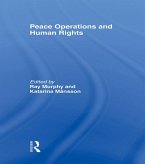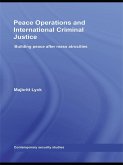This book examines what makes accountability for previous abuses more or less possible for transitional regimes to achieve. It closely examines the other vital goals of such regimes against which accountability is often balanced. The options available are not simply prosecution or pardon, as the most heated polemics of the debate over transitional justice suggest, but a range of options from complete amnesty through truth commissions and lustration or purification to prosecutions. The question, then, is not whether or not accountability can be achieved, but what degree of accountability can be achieved by a given country.
The book examines five countries' experiences in detail - El Salvador, Honduras, Argentina, South Africa and Sri Lanka - and offers a comparative survey of nearly 30 countries' experiences. It discusses three factors that affect the accountability achieved: international or external influences, the balance of forces between civilians and the military and or government and opposition forces, and the extent and nature of previous rights abuses. The book also examines strategies of transition, trade-offs and compromises that regimes (and international actors assisting them) may make in an attempt to achieve greater accountability or greater stability. The focus of the book is on the politics of transition: what makes accountability more or less feasible and what strategies are deployed by regimes to achieve greater accountability (or alternatively, greater reform). The result is a more nuanced understanding of the different conditions and possibilities that countries face, and the lesson that there is no one-size-fits-all prescription that can be handed totransitional regimes.
The book examines five countries' experiences in detail - El Salvador, Honduras, Argentina, South Africa and Sri Lanka - and offers a comparative survey of nearly 30 countries' experiences. It discusses three factors that affect the accountability achieved: international or external influences, the balance of forces between civilians and the military and or government and opposition forces, and the extent and nature of previous rights abuses. The book also examines strategies of transition, trade-offs and compromises that regimes (and international actors assisting them) may make in an attempt to achieve greater accountability or greater stability. The focus of the book is on the politics of transition: what makes accountability more or less feasible and what strategies are deployed by regimes to achieve greater accountability (or alternatively, greater reform). The result is a more nuanced understanding of the different conditions and possibilities that countries face, and the lesson that there is no one-size-fits-all prescription that can be handed totransitional regimes.
Dieser Download kann aus rechtlichen Gründen nur mit Rechnungsadresse in A, B, BG, CY, CZ, D, DK, EW, E, FIN, F, GR, HR, H, IRL, I, LT, L, LR, M, NL, PL, P, R, S, SLO, SK ausgeliefert werden.
'The book is well written and the author does not go farther in her conclusion than her material warrants. It is a well-documented study that should be of interest to anyone who wants to know more about what happens after the fall of a dictatorial regime.' - Netherlands Quarterly of Human Rights
'The book is well written and the author does not go farther in her conclusion than her material warrants. It is a well-documented study that should be of interest to anyone who wants to know more about what happens after the fall of a dictatorial regime.' - Netherlands Quarterly of Human Rights









